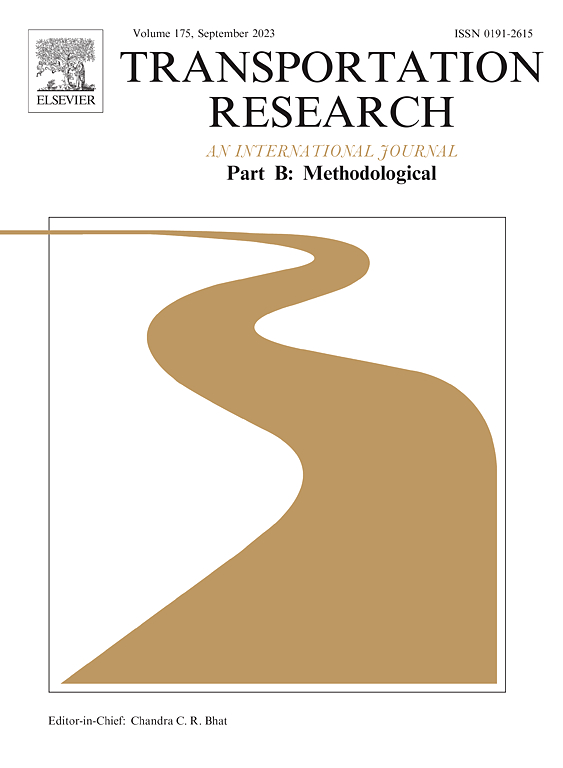铁路编组站列车编组问题与资源调度的综合优化:基于逻辑的Benders分解的混合MILP-CP方法
IF 6.3
1区 工程技术
Q1 ECONOMICS
引用次数: 0
摘要
在编组站,各种复杂的操作发生,导致铁路车辆连接效率低下。因此,设计一个有效的运筹学研究方法是必不可少的编组站,甚至为当地的铁路货运网络。本文研究了列车组成与资源调度的集成问题。建立了混合整数线性规划(MILP)模型,将列车组成问题转化为分配问题,指导整体运行。此外,还建立了一系列混合流车间调度任务,以协调列车、街区和轨道车辆的运行。考虑到TMRS问题的复杂性,将该问题重新表述为混合整数线性规划(MILP)和约束规划(CP)模型。采用基于逻辑的benders分解(LBBD)对TMRS问题进行划分,并在求解过程中设计下界,以加快收敛速度。提出了基于子问题结构的可行性切割、最优性切割和对称性切割,并将其动态添加到主问题中。设计了两个数值示例来证明所提出的混合建模方法,下界和切割的有效性。最后,通过一系列人工实例和实际算例对所提出的方法和算法进行了测试,验证了其实用性和获得高质量解的能力。本文章由计算机程序翻译,如有差异,请以英文原文为准。
Integrated optimization of train makeup problem and resource scheduling in railway marshalling yards: A hybrid MILP-CP approach with Logic-based Benders decomposition
In the marshalling yard, various complex operations occur, leading to inefficiencies in railcar connections. Therefore, designing an effective operational research methodology is essential for the marshalling yard, and even for the local rail freight network. This paper addresses the integrated Train Makeup and Resource Scheduling (TMRS) problem. A Mixed-Integer Linear Programming (MILP) model is developed, where the train makeup problem is formulated as an assignment problem, guiding the overall operations. Additionally, a series of hybrid flow shop scheduling tasks are established to coordinate the operations of trains, blocks, and railcars. Due to the complexity of TMRS, the integrated problem is reformulated as a hybrid mixed-integer linear programming (MILP) and constraint programming (CP) model. Logic-based benders decomposition (LBBD) is used to partition the TMRS problem, with lower bounds designed and integrated into the solving procedure to accelerate the convergence. We propose feasibility cuts, optimality cuts, and symmetry cuts based on the structure of the subproblem, which are dynamically added to the master problem. Two numerical examples are designed to demonstrate the effectiveness of the proposed hybrid modelling approach, lower bounds, and cuts. Finally, the proposed approach and algorithm are tested on a series of artificial instances and real-scale examples, demonstrating their practical effectiveness and ability to achieve high-quality solutions.
求助全文
通过发布文献求助,成功后即可免费获取论文全文。
去求助
来源期刊
CiteScore
12.40
自引率
8.80%
发文量
143
审稿时长
14.1 weeks
期刊介绍:
Transportation Research: Part B publishes papers on all methodological aspects of the subject, particularly those that require mathematical analysis. The general theme of the journal is the development and solution of problems that are adequately motivated to deal with important aspects of the design and/or analysis of transportation systems. Areas covered include: traffic flow; design and analysis of transportation networks; control and scheduling; optimization; queuing theory; logistics; supply chains; development and application of statistical, econometric and mathematical models to address transportation problems; cost models; pricing and/or investment; traveler or shipper behavior; cost-benefit methodologies.

 求助内容:
求助内容: 应助结果提醒方式:
应助结果提醒方式:


